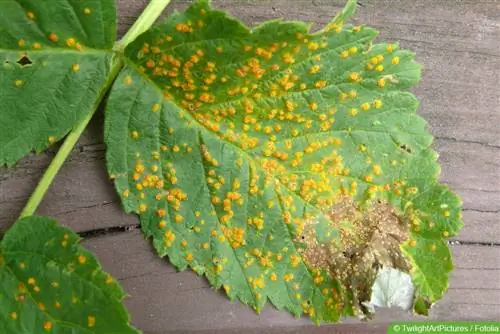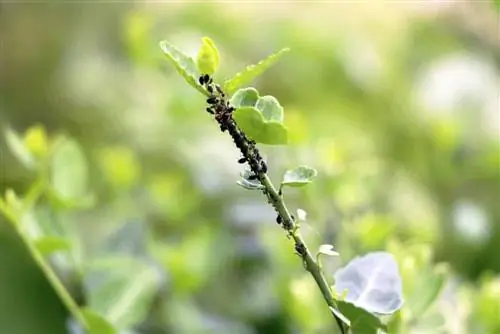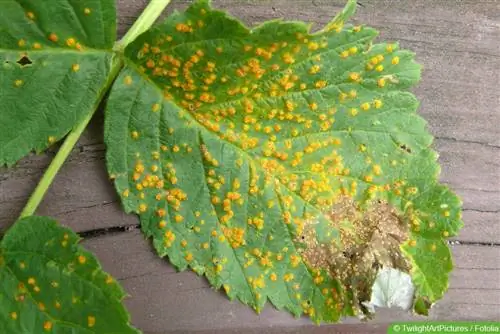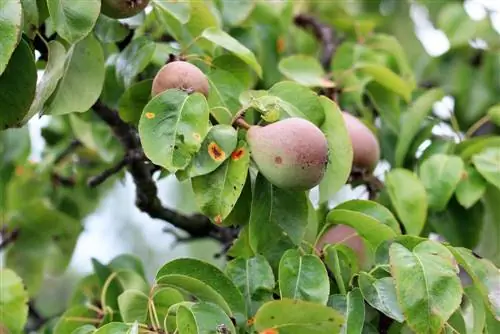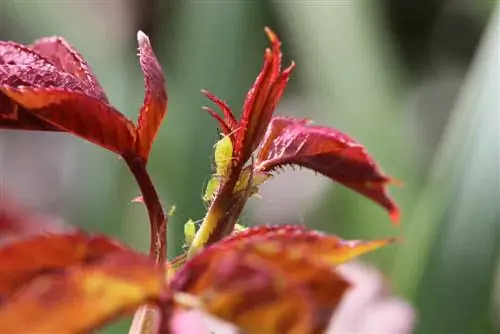- Author admin [email protected].
- Public 2023-12-17 03:39.
- Last modified 2025-01-24 12:45.
Plant rust (Pucciniales) is a more or less feared plant disease. Many of the 14 different rust fungus families are specialized on certain plants, one of the best known being rose rust. These annoying parasites usually attack the leaves, but often also the young shoots. The sooner you take action, the greater the chance of saving the affected plant and preventing the fungal disease from spreading.
How do I recognize rust fungi?
For sensitive plants such as roses, regular checks for rust fungus infestation are recommended. Plant rust is usually shown by yellowish, brown or orange spots on the tops of the leaves. Later the leaves become black and dry, then they soon fall off. Sometimes the first signs are in the form of fungal spores or raised spots (pustules) on the underside of the leaves, so these should always be checked.
Environmentally friendly rust treatment
Plant rust can be combated in an environmentally friendly and organic way using various home remedies. The sooner you start treatment, the greater the chance that the fungi will not spread further. No matter which remedy you choose, removing infected plant parts should always be part of your treatment.
Brew from field horsetail
You can use horsetail broth to prevent rust fungi (Pucciniales), then make a larger quantity straight away. Chop up about 1.5 kilos of field horsetails and let them steep in a 10 liter bucket of water for a day (24 hours). The next day, boil the stock briefly and then let it cool. After straining, dilute the broth with water in a ratio of 1:5 (one part broth to five parts water). Use this dilution to spray the foliage of all rust-prone plants. It is best to start the treatment when the leaves are emerging and repeat the process approximately every two weeks until the end of June. Be sure to also spray the undersides of the leaves, because this is where the rust fungi particularly like to settle and are unfortunately easily overlooked.
Tip:
If you only have a short amount of time to prepare, you can also soak a kilo of chopped field horsetail in ten liters of water for three hours, boil the broth for half an hour and, after it has cooled, dilute it in a ratio of 1:3.
Fern Broth
You can make fern broth from fresh or dried fern. For one liter of broth you need 10 to 20 grams of dried or around 100 grams of fresh herb, which is roughly chopped. Cover and let it steep in a liter of water for 24 hours. Then cook the broth for about 15 to 30 minutes before straining the broth and squeezing out the plant parts well. The cooled fern broth is used undiluted.
Tip:
You can also fight a snail infestation with fern broth.
Garlic tea
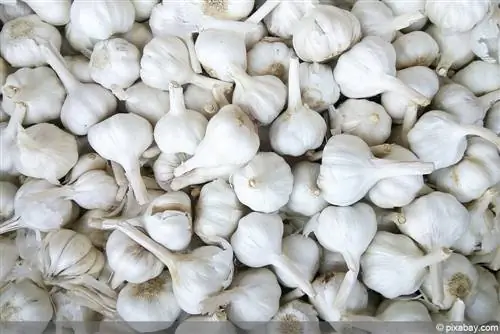
To make garlic tea, you can use both the bulb or peeled cloves as well as the greens. Chop both and pour boiling water over them. For ten liters of water you need about 300 grams of chopped garlic. Let the brew steep for about half an hour before straining it. After cooling down, you can start the treatment. It should be repeated several times at intervals of around 14 days.
Tip:
Alternatively, an onion broth against fungal infestation is often recommended; it is made in a similar way to garlic tea. You can also use the onion broth as a 1:10 dilution to prevent fungi.
Hot yarrow tea
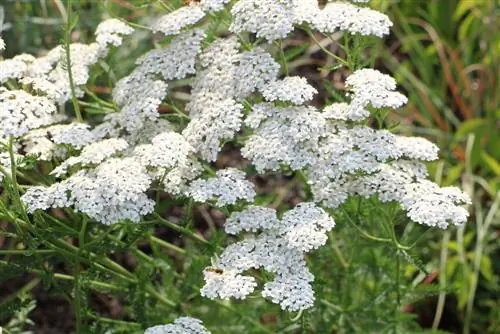
Hot yarrow tea has a variety of effects. It not only works against leaf rust, but also against powdery mildew or monilia and even as a cell-strengthening fertilizer. Steep 20 grams of dried yarrow flowers in one liter of water for 24 hours. After straining, squeeze the wet flowers well. Then dilute the extract with water in a ratio of 1:9.
Dishwashing liquid with oil
The dishwashing liquid solution can be made with oil relatively quickly. Since the solution does not have to steep for long, it can be used after a short time. Mix a few drops of dishwashing liquid with two packets of baking soda, about 100 milliliters of vegetable oil (sunflower or rapeseed oil) and three liters of warm water. Stir the mixture well until everything is dissolved. Filled into a spray bottle it can be used cooled.
Tip:
If you want to spray not just individual leaves but an entire plant with this solution, then cover the ground under the plant with foil until nothing drips down anymore. The mixture could harm the plant roots and should not be absorbed into the soil.
Radical pruning
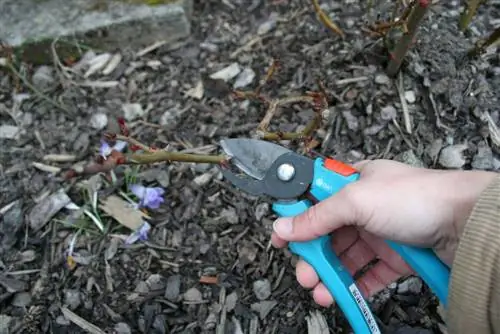
If there is a severe infestation with rust fungi (Pucciniales), only radical pruning often helps. It is essential that all affected parts of the plant be thoroughly removed and cut down to the he althy wood. Pluck off individual affected leaves immediately. Dispose of individual leaves and clippings in the trash. The rust fungus could survive on the compost and even continue to multiply. If you spread your compost later, you may spread the fungal spores throughout your garden.
Tip:
If it is allowed where you live, you can also burn parts of plants infected with rust fungus to effectively destroy the fungus.
Prevent rust fungus
So that rust doesn't even become an issue, you should definitely prevent it effectively. You can start doing this before planting. Wherever possible, choose rust-resistant varieties and an airy location. Make sure the planting distances are sufficiently large so that the foliage can dry more quickly after a rainstorm. If your plants are very close together, you may want to consider spacing them apart. Also thin out treetops if they become too dense.
Keep your plants evenly moist, as prolonged dryness weakens them. Do not water over the leaves, but rather close to the ground and fertilize your plants as needed, preferably with organic fertilizer. An excess supply of nitrogen promotes unwanted fungal infestation. A treatment with horsetail broth, on the other hand, strengthens the immune system. It can be repeated several times if necessary or carried out regularly once a month. Garlic tea also has a preventive effect.

